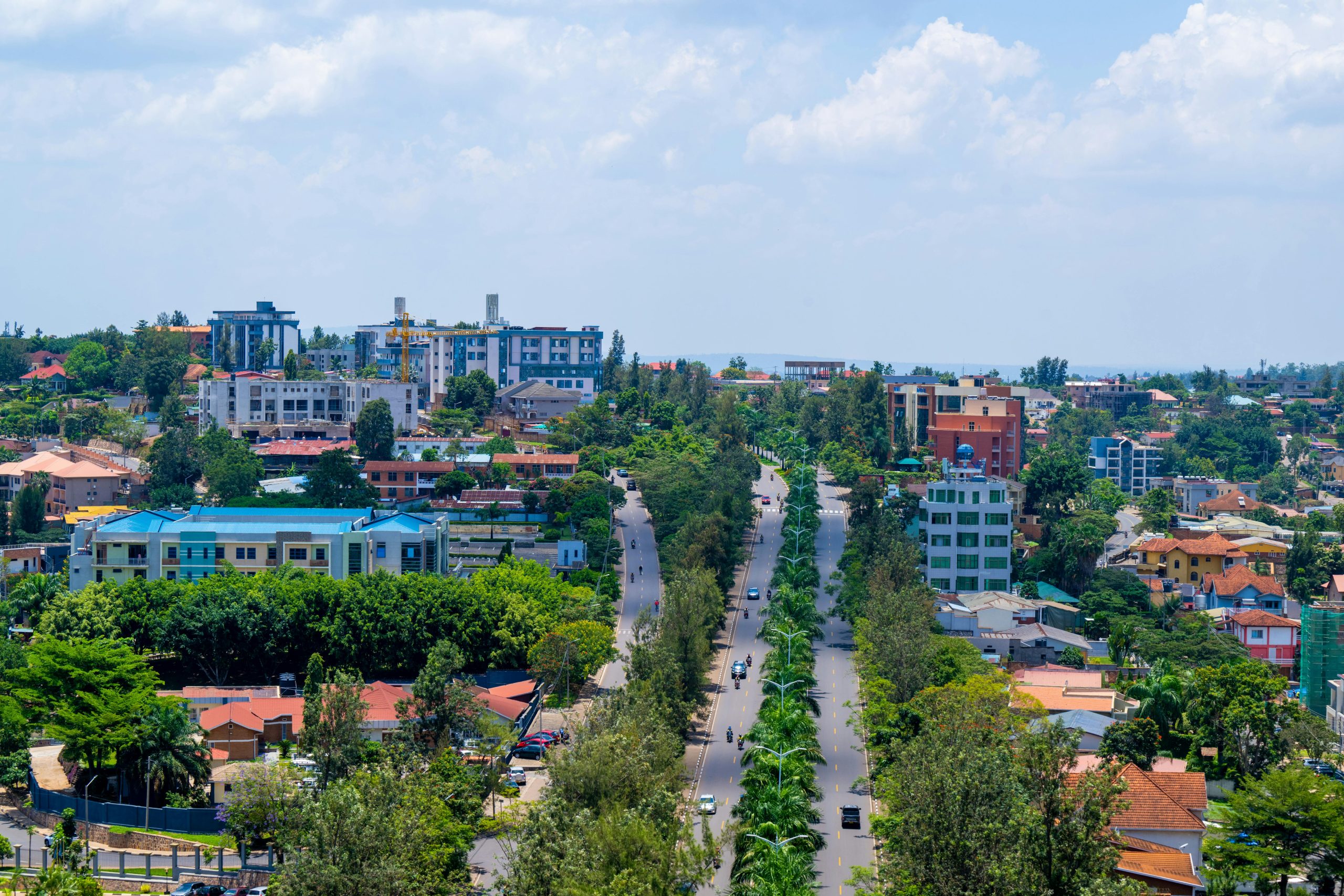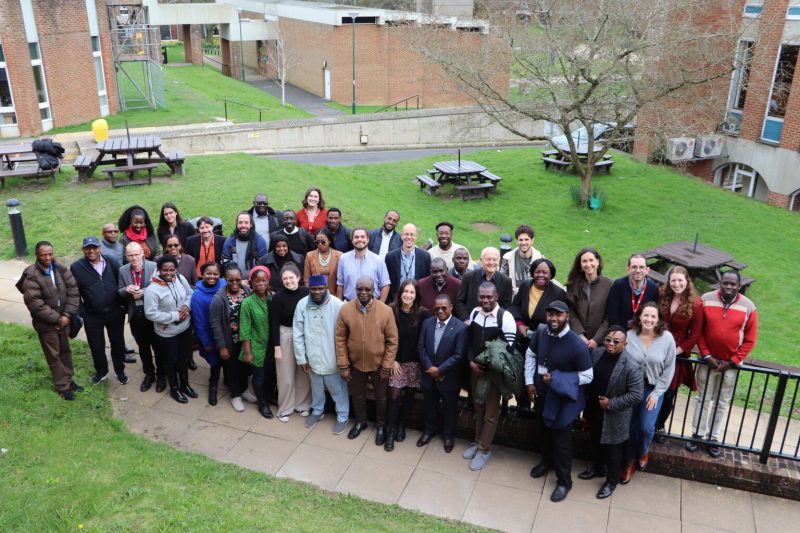Thematic Areas
Since 2013, the Rwanda Revenue Authority (RRA) has been responsible for administering the property tax, known as the “immovable property tax,” on behalf of districts. The property tax is comprised of two parts: a land tax, based on land size and usage, and a building tax, based on the market value of the building. Strikingly, as outlined in the governing legislation, Law No. 048/2023 of 05/09/2023, the building tax does not apply to primary residences. In other words, owner-occupied buildings are exempt and the building tax applies only to individuals who own multiple properties and is levied on the second property onward.
Rwanda operates a self-declaration system, under which property owners are obligated to declare, annually, their property assets along with their respective values through an online portal, the Local Government Tax Management System (LGTMS). As formal (or legal) registration of lands and owners is the pre-condition for taxation, the RRA relies on land data from the National Land Authority (NLA) to identify eligible taxpayers. To this end, the LGTMS is integrated with the NLA’s GIS database, the Land Administration Information System (LAIS) to enable information sharing on land and property ownership. Bills are automatically issued after completing the self-declaration and payments can then be made at the bank or electronically through mobile money or online banking. Some taxpayers rely on third-party platforms, such as the Irembo platform, but at a fee. Tax defaulters are subject to interest charges on late payments, and the legislation empowers the RRA to take legal action against defaulters when necessary. The responsibility for following up with defaulters has been delegated to subcontractors and district authorities, who are tasked with identifying defaulters and urging them to settle their tax obligations.
Although Rwanda deploys one of the most advanced and digitized property tax systems in the region, property tax revenues still fall short of their potential. Exemptions on owner-occupied homes, non-declaration or under-valuing of land and property values, coupled with weak enforcement has led to a narrow tax base, limited property tax revenues, and major inequities. Various reform initiatives are underway to redress these gaps. For instance, the RRA is introducing a Computer-Assisted Mass Appraisal (CAMA) system to verify and correct self-declared property values. Full implementation of the system is expected later in 2025.
Learn more:
- Bower, Kundert, McSharry, and Brimble (2022): “How Data Can Improve Property Tax Implementation in Rwanda.” https://www.theigc.org/sites/default/files/2022/06/Bower-et-al-2022-Policy-Brief.pdf
- Goodfellow (2017): “Taxing Property in a Neo-Developmental State: The Politics of Urban Land Value Capture in Rwanda and Ethiopia.” https://opendocs.ids.ac.uk/articles/journal_contribution/Taxing_Property_in_a_Neo-Developmental_State_The_Politics_of_Urban_Land_Value_Capture_in_Rwanda_and_Ethiopia/26440507?file=48186064
Featured Projects
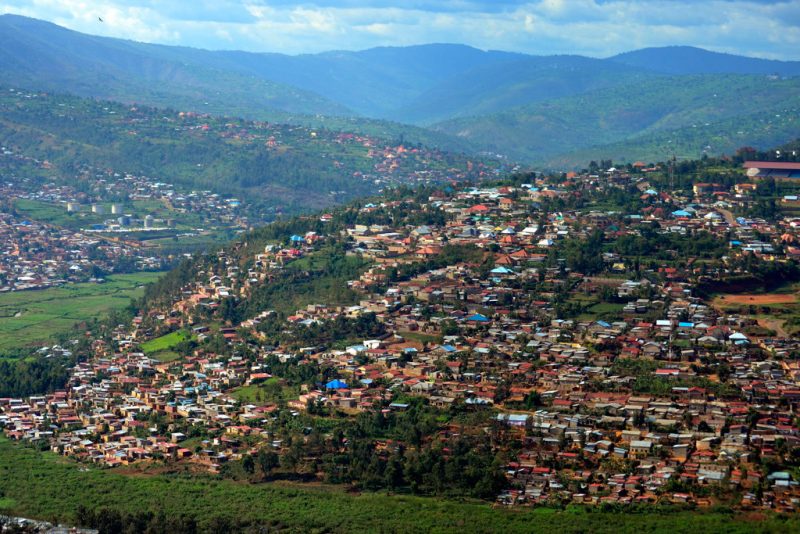
Status: Completed
District Revenue Mobilization Strategies in Rwanda
Research & Publications
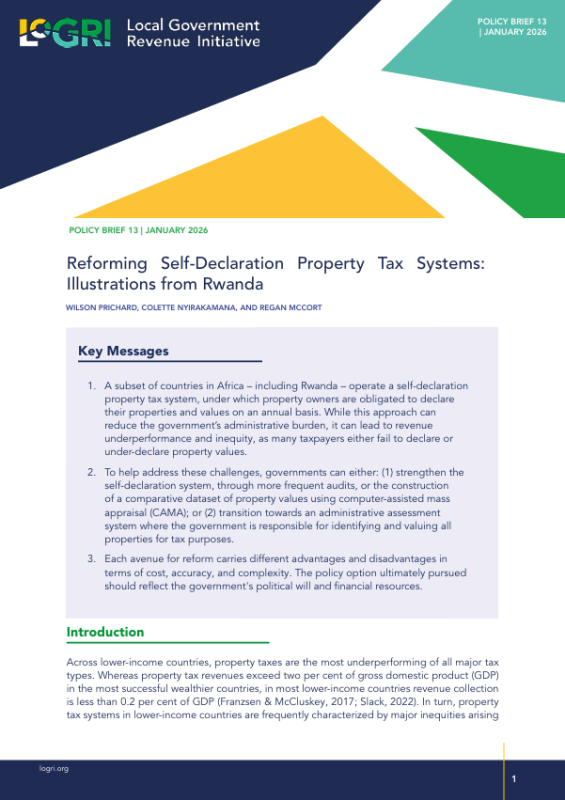
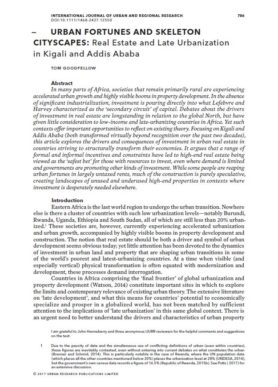
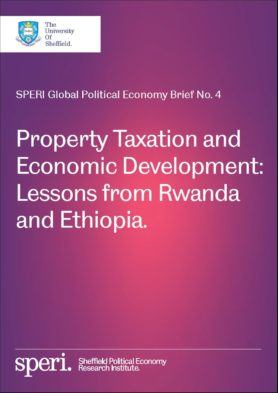
Related Media
Photo credit to Pexels/Faustin Nkurunziza

